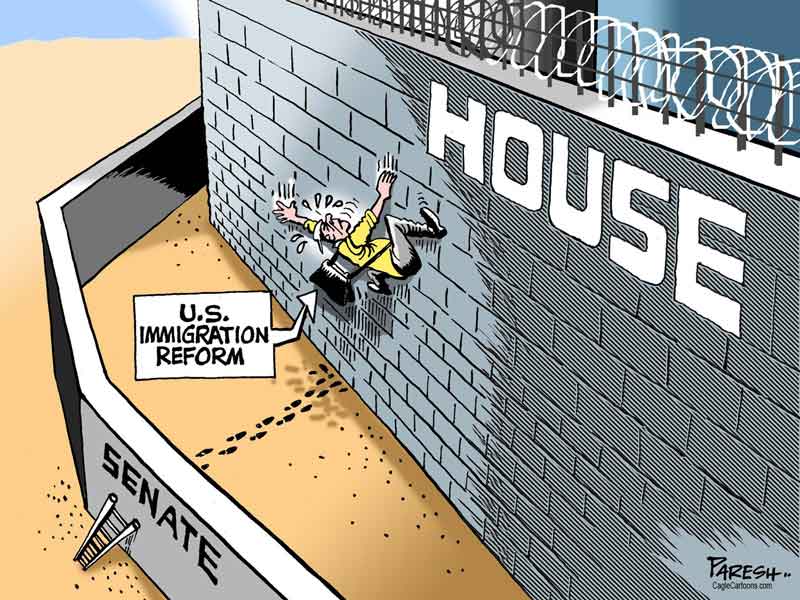Now that the Senate has passed a sweeping bipartisan bill to overhaul the nation’s immigration laws, it’s the House’s turn to act. But as expected, Republicans in that chamber are once again insisting that the border between the U.S. and Mexico be sealed as a prerequisite to approving broader reforms. Unless 90 percent of illegal border crossings are stopped once and for all, they say, they will not support any plan to grant legal status to the 11 million immigrants who are already living in the country illegally.
Such requirements, however, are pointless. The reality is that the border is more secure today than at just about any time in this nation’s recent history. The number of immigrants who entered the U.S. illegally at the nine major crossing points from California to Texas fell by an astounding 86 percent between 2006 and 2011, according to the Government Accountability Office. Overall, the number of immigrants coming illegally to the United States is at a 40-year low, having dropped from slightly more than 1 million in 2005 to fewer than 365,000 in 2012 and 2011, according to the Border Patrol.
Clearly, the decline in illegal immigration is due to changes on both sides of the border, including the sluggish U.S. economy and greater economic opportunity in Mexico. But much of the shift is also the result of heightened border enforcement that began during the George W. Bush administration and continues today. More than 20,000 agents are assigned to patrol the border, assisted by drones and other technology.
Such gains are conveniently overlooked by border hawks in the House, including Rep. Steve King, R-Iowa, who apparently believes that anything less than a U.S. equivalent of the Great Wall of China is insufficient. But even the final Senate immigration bill — in which border security spending was jacked up at the 11th hour from $4.5 billion to $46 billion — would not establish an impenetrable border.
The United States has a right to determine who should be allowed into the country. But the best way to reduce illegal entries is to ease the bottleneck for legal immigration and to tighten penalties against employers who sidestep the law. And that’s exactly what the Senate bill does, increasing the number of green cards for high- and low-skilled workers while providing temporary visas to seasonal workers.
The Senate has done its job. Now let’s hope House Republicans can figure out a way to do theirs and deliver much-needed comprehensive immigration reform.
Editorial by the Los Angeles Times
Send questions/comments to the editors.



Success. Please wait for the page to reload. If the page does not reload within 5 seconds, please refresh the page.
Enter your email and password to access comments.
Hi, to comment on stories you must . This profile is in addition to your subscription and website login.
Already have a commenting profile? .
Invalid username/password.
Please check your email to confirm and complete your registration.
Only subscribers are eligible to post comments. Please subscribe or login first for digital access. Here’s why.
Use the form below to reset your password. When you've submitted your account email, we will send an email with a reset code.